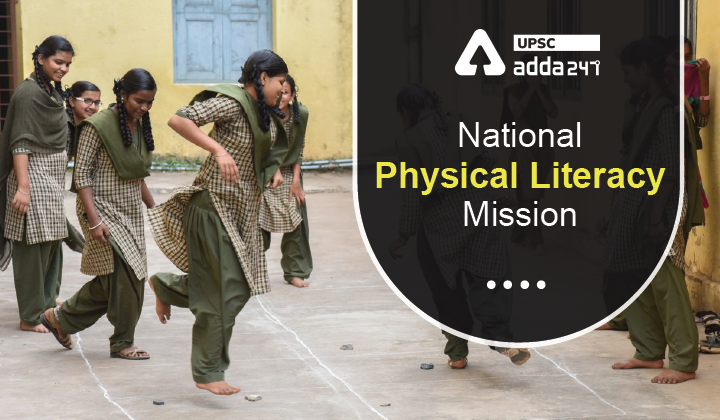Table of Contents
National Physical Literacy Mission UPSC: Relevance
- GS 2: Issues relating to development and management of Social Sector/Services relating to Health, Education, Human Resources.
National Physical Literacy Mission: Context
- Recently, Supreme Court has asked the Centre and States to respond to a report recommending sports to be made a fundamental right under Article 21 of the Constitution.
राष्ट्रीय शारीरिक साक्षरता मिशन: खेल को एक मौलिक अधिकार बनाना
National Physical Literacy Mission: Key points
- Earlier, the report submitted by Gopal Sankaranarayanan—the court’s amicus curiae—suggested that the narrow phrase ‘sport’ be replaced by ‘physical literacy’, which is a term firmly established as a right in the leading sporting nations of the world.
- The report was filed in a PIL to amend the Constitution to make sports a fundamental right and amend the Directive Principles of State Policy to include an obligation to strive for promotion of sports education.
- The PIL had also urged that sports should be transferred to the Concurrent List to facilitate cooperative work between the Centre and states.
What is National Physical Literacy Mission (NPLI)?
- Now, the apex court has directed the Centre to respond to the report’s view to establish a ‘National Physical Literacy Mission.
- National Physical Literacy Mission meaning: NPLI is expected to give effect to the right by establishing and implementing a responsibilities’ matrix that includes curriculum design, compliance monitoring, and review, grievance redressal and self-correction mechanisms which starts at the school level to groom children for various sports.
- The report was of the view that all school boards including CBSE, ICSE, State Boards, IB, IGCSE should be directed to ensure that from the academic year commencing 2022-2023, at least 90 minutes of every school day will be dedicated to free play and games.
- The report suggested that State governments should ensure that from the current academic year, all non-residential colleges and schools should compulsorily allow access during non-working hours to neighbourhood children to use their playgrounds and sports facilities for free, subject to basic norms of identification, security and care.
- The policy will include the institution’s commitment to a ‘no-child-left-behind’ approach that ensures that the institution’s physical literacy activities are designed and delivered in a manner that is inclusive of students with physical and mental disabilities, girls, students from marginalized economic and social groups.
- The committee had asked the apex court to direct the Ministry of Education, to form an empowered committee to devise a strategic blueprint for actualising the fundamental right.
- The report also opined that 180 days’ time should be given to educational institutions, which hosts students for more than 10 hours a week, to publish and disseminate to parents/guardians a ‘Physical Literacy Policy’ and create an internal committee to address specific cases where there is a failure in responsibilities to deliver the right to physical literacy of students.
Read current affairs for UPSC




 TSPSC Group 1 Question Paper 2024, Downl...
TSPSC Group 1 Question Paper 2024, Downl...
 TSPSC Group 1 Answer key 2024 Out, Downl...
TSPSC Group 1 Answer key 2024 Out, Downl...
 UPSC Prelims 2024 Question Paper, Downlo...
UPSC Prelims 2024 Question Paper, Downlo...





